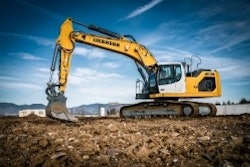If all you are interested in is getting the absolute lowest, rock-bottom price on the new equipment you buy, chances are you’ll eventually find somebody to fulfill that desire.
The trouble is, you may also get the wrong machine for the job, a salesman who doesn’t care whether your business succeeds or fails and you may miss out on warranty extensions, service contracts, financing and a host of other value-added propositions that dealers reserve for their good customers. And the next time you have an equipment problem and need a fast favor? Good luck.
“You don’t incentivize a negotiator to come back only with the best price, because chances are if he does, something in that deal will blow up down the road,” says Roy Lewicki, author of Think Before You Speak: A Complete Guide to Strategic Negotiation and a professor at the Fisher College of Business at Ohio State University. “Good customer-supplier partnerships are built around mutual trust and respect and that often means that price is not the only parameter.”
Remember the relationship
The most important tool you have in your negotiating toolkit is the relationship you have with your equipment dealer.
Such relationship building is not, however, idle chitchat about the family and sports. Rather it is a process of getting to know each other’s business and the buyer should be asking a lot of questions. But don’t wait until it’s time to purchase new equipment.
“The time to work on the relationship is in-between the business cycles,” Lewicki says. Keep them informed about your business. Tell them about upcoming jobs or your plans for expansion. Ask about new lines of equipment. Ask how they differ from the competition.
Selling yourself as a customer
Successful negotiators also understand that the buyer shouldn’t just sit back and let the seller do all the work in a relationship. According to Tom Wood, president of Watershed Associates, a Washington, D.C.-based consulting firm that coaches clients on value-based negotiations, successful buyers always ask themselves this question: “What makes me a good customer?”
While this may seem counter-intuitive to the contractor with a wad of cash to spend, it is, nonetheless, a great pre-negotiation tactic. “The secret all successful sales people know is that people always give the best deals to the people they like and trust,” Wood says. “So ask yourself: Do you pay your bills on time? Are you in a market the vendor’s been trying to break into? Are you easy to work with, or are you a pain? You need to demonstrate your value as a desired customer.”
Wood uses the current truck market as an example. With the market for highway haul trucks flat, construction truck customers are highly sought after. “But you shouldn’t go in and beat up your truck vendor on price just because it’s a buyer’s market,” he says. “Right now you’re a desirable customer. But that can and will change.” And when the cycle reverses and trucks are selling at a premium and you need a favor, you’re unlikely to get it from somebody you low-balled a few years back.
Where is their pain?
But selling yourself as a customer doesn’t mean rolling over for prices either. Wood says you need to understand what’s important for the seller and figure out ways you can help them without incurring a lot of cost.
“Maybe you’re in Fresno and they need to pick up market share in Fresno,” he says. “Can you be a reference account for them? Can you provide testimonials? Will you allow them to write a case study on you? Where is their pain? What are their challenges? These are low cost or no cost things that you can do that may be of high value to the seller.”
Remember the relationship continues even after the deal is concluded.
Building trust and appreciation
In addition to understanding your seller’s needs, you need to present yourself as trustworthy and appreciative to be an effective negotiator. “Make few promises and take good care of them,” advises Roger Fisher, author of the book Getting To Yes and a member of the Harvard Negotiation Project. “If you can’t make a date or a meeting, call them up and reschedule. Treat your promises very seriously.”
Appreciating the other side’s efforts is also key, Fisher says. “That means understanding what they’ve done, demonstrating you understand it and adding value to that in their eyes by expressing value in your eyes.” For example, when a vendor works all weekend on a big proposal and the buyer just shrugs it off, that can be very upsetting. “Showing appreciation is one of the easiest things to do and the easiest things to forget,” he says.
Prepare well
It might seem obvious to say you should plan thoroughly for the meeting where price negotiations will take place, but most people don’t do enough. “The tendency in America is ready, fire, aim,” Lewicki says.
Part of the planning process is figuring out what the issues are. Price, naturally, is one of those issues, but you need to dig deeper into the reasons behind the price. “You want the seller to be able to explain why his is a fair price and why it’s appropriate,” Fisher says. “When he says, ‘Here’s the cost,’ you have to ask, ‘Where does that come from?'”
Charlie Sanders, president of Sanders Consulting Associates, a firm that helps contractors, rental companies and manufacturers match their equipment and personnel needs to the marketplace, agrees that the price should be explained and explored in detail. “The customer should have some sense of what a reasonable discount is and what that discount would be based on,” he says. Discounts are usually based on cash purchase, volume purchasing or long term-relationships with the distributor. Dealers may also offer discounts on certain attachment packages.
Warranties, service contracts, delivery and training can also affect price and should be explored in detail. And it’s the details that can often cause consternation after the sale. “If you are buying a new concrete or asphalt paving machine and you want to send your guy to the factory to get some training, it’s critical to get that schedule worked out,” Sanders says. “If the next training class is not until next year, that’s not going to help you much.”
Get buy-in from above and below
In the bigger construction companies, the chief executives and financial officers may never actually meet the people who sell the machines to the equipment manager. But having executive level input and endorsement can keep a deal from unraveling.
“My experience is that the equipment and financial managers have to work hand in hand,” Sanders says. Collaboration between these two is especially critical when the purchase involves equipment other than just replacement machines. If you are buying equipment to ramp up for a new job or if you’re buying equipment for a new type of work that your company has not performed in the past, your financial people have to have new productivity information and a good estimate of what kind of returns they’ll get on the investment, Sanders adds.
“If you are the equipment manager you ought to get your company owner involved,” Wood says. “A big dinner with yourself, your chief executive and the dealer principals can have a very positive effect.” But Wood recommends you stay away from business talk and strive to build good will. “The salesman may try to get you to talk, but you’ve got to be disciplined enough to say, ‘That’s a very good question. Tomorrow morning let’s talk about that.’ Then people are more open to you and will share their interests. We call those low-cost opportunities,” he says.
Wood also urges equipment buyers to get feedback and buy in from operators and superintendents in the field. Your effectiveness as a manager will be undercut if you are percieved as having done an end run around them. And their opinions about the equipment may be an important point of leverage at the bargaining table.
Have a walk away plan
“Your deal is only as good as what else you can do,” Lewicki says. “It is far more difficult to negotiate with a single source than when you have viable alternatives.”
In a good walk-away plan you’ll have established the maximum price you’re willing to pay and what your alternatives are if you can’t get this price.”
Don’t just assume you can get a lower price from another dealer or brand of equipment. Have that research done well in advance. The Internet is often a good source. And well before final negotiations you can let your primary dealer know that you’ve been looking at the alternatives and have a good idea of what their pricing is. “The earlier you do that, the sooner they realize they don’t have you trapped,” Fisher says.
Handshakes are fine, but get it in writing
Nobody knows how many billions of dollars have been exchanged through handshake deals in the construction business. The people who do deals this way are almost always honest and ethical. But the experts we talked to warn that handshake agreements are fraught with danger. It’s not that the parties involved would cheat. The problem is that in any transaction other than the simplest, what one party says may not be what the other party hears.
People make assumptions, Fisher says, based on past experience that may not correspond to current reality. A lot can change between the model series on otherwise identical pieces of equipment. And handshake agreements rarely have a lot of detail in them.
The only way to prevent misunderstandings is to have at least a memorandum of understanding. This doesn’t have to be a lawyer-approved and notarized document, Fisher says. Just discuss and write down everything you think the deal involves and send it to the seller and ask him or her to call you back if anything is in question.
Resources: Good dealmakers are trained
It’s unlikely that anyone is born a great negotiator. But the skills required are teachable and can often be worth the effort to learn. “Our belief is – especially if you are a small company – that your negotiating skill is your leverage,” says Tom Wood, president of Watershed Associates. If you are interested in developing your or your team’s skills in negotiating, there are plenty of resources to turn to.
For starters, the books we mentioned: Think Before You Speak: A Complete Guide to Strategic Negotiation, by Roy Lewicki and Getting To Yes, by Roger Fisher are available in many book stores or through most web-based booksellers.
You may also want to keep your eye out for workshops and seminars put on by professional associations or your area colleges and universities. And there are consulting firms such as Watershed Associates that can help train groups of people to be more effective negotiators. For more on Watershed’s programs call (202) 244-0889 or visit www.WatershedAssociates.com.






